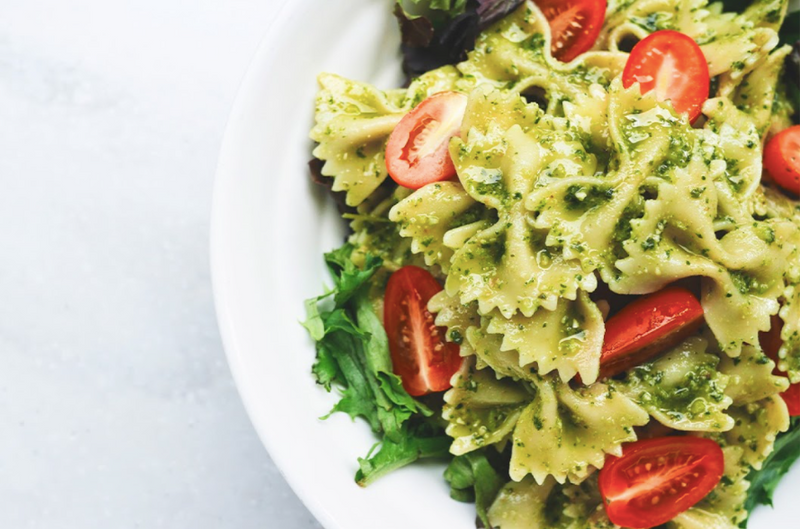Today, the term "diet" is often associated with the idea of losing weight; in other words, following a high-calorie diet. And while losing weight can be difficult at times, it's just as difficult for some people to gain weight. In this situation, it's helpful to resort to a high-calorie diet. What is a high-calorie diet? When and how should you adopt it? What are the highest-calorie foods?
What is a high-calorie diet?
A high-calorie diet is one in which your calorie intake exceeds your daily energy expenditure. The goal of a high-calorie diet is to gain weight by increasing the total number of calories consumed per day.
Did you know?
On average, to gain 500g per week, you need to increase your calorie intake by 500 kcal per day compared to your usual diet.
Under what circumstances should you adopt a high-calorie diet?
People who want to build muscle mass will obviously increase their calorie intake to achieve this, but they are not the only ones. Indeed, some people have bodies that consume more energy to function than others. In other words, their bodies burn the calories consumed more quickly. This is called having a fast metabolism. For these people, it can be difficult to reach or maintain a healthy weight. It is therefore necessary for them to increase their daily calorie intake. In addition, certain inflammatory diseases or injuries/surgeries requiring extensive healing require a lot of energy. This can lead to significant weight loss, as is often the case with cancer, hyperthyroidism, or serious burns, for example.
Did you know?
Diseases that cause nutrient malabsorption, such as Crohn's disease, can lead to unintentional weight loss. The body is unable to absorb the calories consumed.
High-calorie foods for weight gain
Fruits and oilseeds.
|
Raisin |
280 kcal |
|
Black olive |
162 kcal |
|
Lawyer |
155 kcal |
|
Banana |
90 kcal |
|
Grapes |
70 kcal |
Legumes and tubers.
|
Soybean |
420 kcal |
|
Lens |
330 kcal |
|
Hummus |
288 kcal |
|
Sweet potato |
90 kcal |
|
Potato |
80 kcal |
|
Pea |
70 kcal |
|
Parsnip |
60 kcal |
Cereal products.
|
Wholemeal pasta |
350 kcal |
|
Brown rice |
350 kcal |
|
Grain bread |
280 kcal |
|
Wholemeal bread |
250 kcal |
Fats.
|
Oil |
899 kcal |
|
Butter |
730 kcal |
|
Margarine |
591 kcal |
Dairy products and substitutes.
|
Cheese |
350 kcal |
|
Whole milk |
66 kcal |
|
Yogurt |
65 kcal |
|
Semi-skimmed milk |
46 kcal |
Meat, fish, egg.
|
Salmon |
200 kcal |
|
Lamb |
160 kcal |
|
Tuna |
150 kcal |
|
Beef |
140 kcal |
|
Egg |
140 kcal |
Confectionery.
|
Dark chocolate |
572 kcal |
|
White chocolate |
560 kcal |
|
Milk chocolate |
555 kcal |
How to make it easier to adopt a high-calorie diet and gain weight?
The goal of a high-calorie diet is to stimulate your appetite in several different ways. However, it can be difficult to consume a large amount of food every day. Here are some tips for consuming more calories every day.
Increase calorie intake without increasing the volume of your meals.
Gaining weight isn't necessarily the result of eating more. Indeed, the concept of energy density is important. The energy density of a food defines the number of calories per gram of that food. It will be influenced by the water, fiber, simple or complex carbohydrate, and fat content of the food in question. Water (0 kcal/g) and fiber (2 kcal/g) will tend to decrease the energy density of your food, unlike sugars (4 kcal/g) and fats (9 kcal/g), which will increase it.
Did you know?
350g of leeks and 45g of chocolate bars provide the same calorie intake. However, 350g of leeks will provide you with fiber, vitamins, and minerals, unlike the chocolate bar, which will provide you with mostly sugar and fat. Leeks will keep you feeling full longer because they take up more space in your stomach, and the fiber they contain is satiating.
For those looking to gain weight, it's best to eat foods with a high energy density. While making sure to maintain a variety of foods with good nutritional quality, they provide carbohydrates, fiber, protein, fats, vitamins, and minerals, rather than empty calories from saturated fats and sugars.
Make snacks.
In addition to your high-calorie meals, it's important to include one or more snacks throughout the day. Just like meals, they should be high in calories and contain nutritionally valuable foods. Gaining weight isn't a reason to increase your consumption of sweets or other foods with less nutritional benefits. Three dried dates with nuts, or about 50g of dried fruit and a few nuts, for example, can be a quality snack and provide about 250 kcal.
Practice regular physical activity.
When you want to gain weight, you should engage in low- to moderate-intensity physical activity. The goal is to avoid burning too many calories while stimulating your appetite through physical activity. If you don't engage in physical activity in addition to increasing your calorie intake, you risk only gaining fat, which will be detrimental to your health.
In summary.
Gaining weight isn't necessarily easy, and it needs to be done intelligently. Increasing the size of your meals is a good idea, but with foods that provide carbohydrates, fats, proteins, fiber, vitamins, and minerals. Despite what you might think, engaging in low- or moderate-intensity physical activity helps transform fat mass into muscle mass, which is good for your health and will stimulate your appetite.













